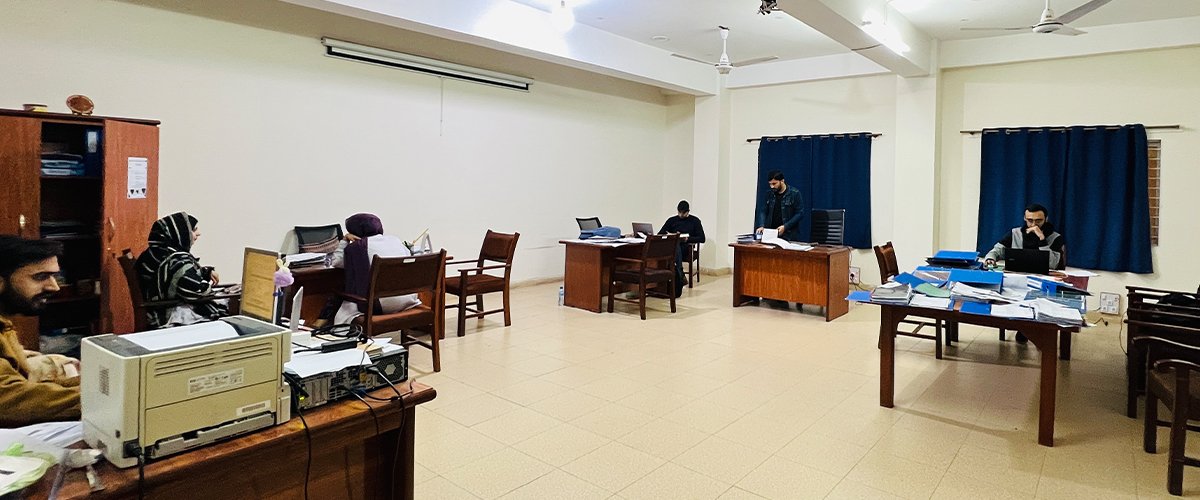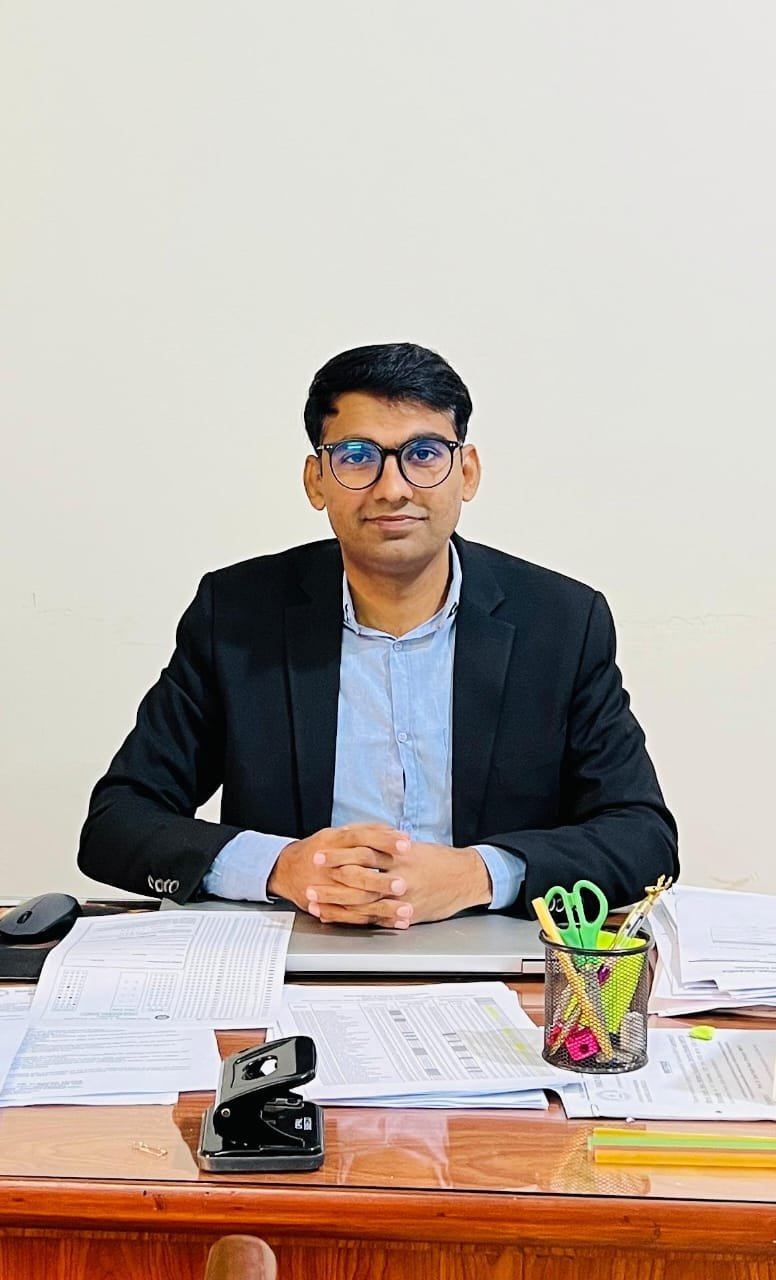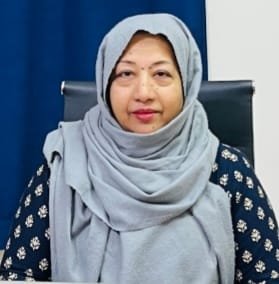
The Department of Medical Education at Niazi Medical and
Dental College was established with a clear vision: to elevate
the standards of medical education and to ensure that both
faculty and students are equipped with the relevant knowledge
and skills necessary to excel in the rapidly evolving field of
healthcare. As the medical landscape becomes increasingly
complex, driven by advances in technology and shifting patient
needs, the importance of quality education in nurturing
competent healthcare professionals has never been more
critical.
Faculty Development Program
One of the cornerstone initiatives of the Department of
Medical Education is its comprehensive Faculty Development
Program. Recognizing that educators play a pivotal role in
shaping the future of healthcare, the program is designed to
enhance the pedagogical skills, clinical knowledge, and
evaluative techniques of faculty members. The Faculty
Development Program encompasses a range of activities,
including workshops, seminars, and training sessions, all
aimed at fostering an environment of continuous learning.
These initiatives not only focus on the latest advancements in
medical education theory and practice but also include
practical training on how to effectively engage students in
the learning process. Through interactive workshops, faculty
members are encouraged to explore innovative teaching methods
that cater to diverse learning styles. The program emphasizes
the importance of mentorship, with experienced educators
guiding newer faculty in the complexities of medical
instruction, from curriculum development to student
assessment.
Continuing Medical Education Activities
In addition to faculty development, the Department of Medical
Education is actively engaged in Continuing Medical Education
(CME) activities. The rapidly changing landscape of medicine
necessitates that healthcare professionals remain adept at
updating their knowledge base and skills. Recognizing this
need, the department organizes a variety of CME programs that
address current developments in medical science, clinical
practice, and patient care.
These activities include hands-on workshops, and
interdisciplinary seminars, all aimed at reinforcing the
bridge between theoretical knowledge and practical
application. By inviting distinguished speakers and experts
from various specialities, the CME programs provide faculty
and students alike with insights into contemporary medical
challenges and innovations. This approach not only enriches
the educational experience but also enhances the overall
quality of healthcare delivered by the institution's
graduates.
Workshops and Hands-On Training
Workshops form an integral part of the medical education
framework at Niazi Medical and Dental College. These sessions
are designed to offer both students and faculty vivid,
hands-on experiences in clinical skills. Topics range from
basic life support and advanced cardiac life support to more
specialized areas such as surgical techniques and diagnostic
procedures.
By emphasizing practical skills, the workshops seek to bridge
the gap between theoretical concepts taught in the classroom
and real-world clinical practice. Faculty members conduct
these workshops, ensuring that they are relevant and aligned
with the latest medical standards. Furthermore, the emphasis
on interactive learning fosters a collaborative environment
where both students and faculty can engage in dialogue, share
experiences, and enhance their professional practice.
Participation in Research
Research is another crucial component of the Department of
Medical Education at Niazi Medical and Dental College. The
department is committed to fostering a culture of inquiry and
evidence-based practice among its faculty and students.
Engaging in research not only contributes to the body of
knowledge in medical education but also equips educators with
the tools necessary to critically assess and apply findings to
improve instructional methods and curricular content.
Faculty members are encouraged to collaborate on research
projects that explore various aspects of medical education,
including teaching methodologies, curriculum effectiveness,
student performance, and educational outcomes. The department
provides support in terms of resources and guidance, helping
faculty navigate the complexities of the research process—from
hypothesis formulation to data collection and analysis.
Students are also given opportunities to participate in
research, which enhances their critical thinking and
analytical skills. By encouraging a research-oriented mindset
among future clinicians, the Department of Medical Education
aligns its goals with the broader objectives of fostering
innovation and improving healthcare delivery.
The Department of Medical Education at Niazi Medical and
Dental College represents a dynamic and integral part of the
institution's mission to provide high-quality medical
education. Through its focus on faculty development programs,
continuing medical education activities, hands-on workshops,
and active participation in research, the department not only
enhances the educational experience for its faculty and
students but also contributes to the advancement of the
healthcare profession as a whole. As the healthcare landscape
continues to evolve, the efforts of the Department of Medical
Education will ensure that Niazi Medical and Dental College
remains at the forefront of medical education excellence,
preparing its graduates to meet the challenges of the future
with competence and confidence.
Dr. Nadeem Razzaq
- Associate Professor
- Director, Department of Medical Education
-
Best Qualities of Medical Facilitator, Students Perceptive View
-
Evaluation of Students to Select Different Educational Technique Using DREEM
-
Effect of E-Learning on Higher Education
-
Problem Based learning by Evaluating Students Learning Preferences Using VARK
-
Reflective Practice at a Private Sector Medical College
-
Small Group Discussion, an Effective Tool for Learning
-
Writing a Feedback
-
Perception of Faculty of their Role as Medical Facilitator
-
ASSESSMENT OF NON-FUNCTIONAL DISTRACTERS IN MULTIPLE CHOICE QUESTIONS: A DESCRIPTIVE ANALYSIS
Dr. Sadaf Konain Ansari
- Assistant Professor
- Department of Medical Education
-
Social Capital as a Predicting Indicator to Measure the Psychological Health Impacts of COVID-19 Pandemic on Urban Societies in Pakistan
-
Untamed Mental Well-Being of Children from Shadow Parenting Families
-
Record Appraisal of Program of Studies that Medical College Comply with Modern Standards
-
AWARENESS OF BREAST SELF-EXAMINATION IN WOMEN OF ISLAMABAD CAPITAL, PAKISTAN
-
The role playing by social media in COVID-19 to exacerbate anxiety and depression among Pakistani community
-
Unmediated connection of mental health decline and suicide among medical and nonmedical undergraduates during the pandemic of COVID-19: A cross-sectional comparative study
-
Exploring all the Possible Approaches to Measure Practical and Communication-skills in OSPEs and OSCEs of medical undergraduates during the Pandemic-time of COVID-19
-
Determine augmented risk association between health problems and screen exposure to electronic gadgets in university students, Islamabad during COVID-19 pandemic
-
The knowledge regarding Breast Cancer, its risk factors, and screening practices among women from Islamabad, Pakistan
-
Medical students’ psychological wellbeing and their overall academic performance—a correlational study
-
Teaching professional ethics to undergraduate medical students
-
Difficulty Index, Discrimination Index and Distractor Efficiency in Multiple Choice Questions

Dr. Nadeem Razzaq
MBBS, MS.c
